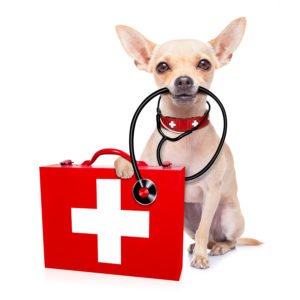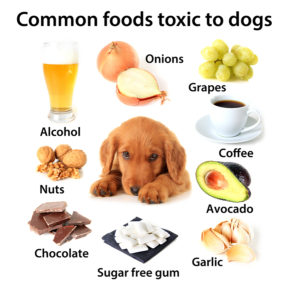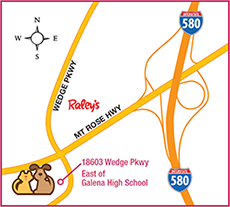
Identifying Pet Poisons
 When thinking about household items that are toxic to pets, one normally gravitates to the obvious, like household cleaners, pest and insect control treatments and even anti-freeze, which is especially appealing because of its sweet taste.
When thinking about household items that are toxic to pets, one normally gravitates to the obvious, like household cleaners, pest and insect control treatments and even anti-freeze, which is especially appealing because of its sweet taste.
Also consider these items equally dangerous to pets, yet hiding in plain sight:
- Medications
In addition to prescription drugs, common pain relievers like Tylenol and ibuprofen can be toxic, and are especially so to cats, whose systems can’t handle anti-inflammatory medications. - Dryer Sheets
The chemical coating can be harmful if sheets are chewed or eaten, and even used sheets present danger of poisoning. - Batteries
A punctured battery can leak toxic fluid, and batteries swallowed whole also pose danger to a pet’s internal organs if compromised during digestion. It’s a good idea to keep battery-operated toys out of a pet’s reach.
There are additional toxic dangers in your home that seem harmless, and are even healthy for humans but are dangerous for pets.
Be mindful of these People Foods That Are Poisonous to Pets:

- Xylitol in gum, candy, baked goods, chewable vitamins and oral hygiene products
Xylitol in sugar-free products is processed differently in dogs than in humans, and can spike insulin levels, leading to hypoglycemia which can even progress to seizures and even liver failure. - Grapes and Raisins
Even a small amount is capable of causing kidney failure. - Nuts
The high amount of oil and fat in nuts can cause pancreatitis in pets. Macadamia Nuts are especially toxic to pets. - Salt and Salty Snack Foods
Salt can result in excessive thirst and urination, and even sodium ion poisoning. - Onions, Garlic and Chives
Ingesting these can cause gastrointestinal irritation and even lead to red blood cell damage, especially in cats. - Chocolate, Coffee and Caffeine
Methylxanthines found in cacao seeds and coffee plants can cause symptoms ranging from signs of physical discomfort to hyperactivity, abnormal heart rhythm, tremors, and seizures.
While darker chocolate is more dangerous than milk chocolate, all sweets along with coffee and caffeinated drinks should be kept away from pets. - Alcohol
Pets should never be given alcohol. It not only affects coordination, but can also lead to distress within the central nervous system along with difficulty breathing, tremors and worse. - Marijuana
Ingestion of Marijuana can lower a pet’s heart rate to dangerous levels, to the point of losing consciousness.
Symptoms of Pet Poisoning:
- Vomiting

- Diarrhea
- Seizures
- Lethargy
- Loss of Appetite
- Loss of Coordination
- Excessive Thirst or Urination
- Drooling
- Weakness
 Whenever you sense that your pet may have been exposed to or ingested a toxic substance, it’s important to seek immediate veterinary assistance.
Whenever you sense that your pet may have been exposed to or ingested a toxic substance, it’s important to seek immediate veterinary assistance.
Your pet’s life may depend upon your speedy intervention, so be alert and pay attention to pet behavior.
Your pet’s best friend is a watchful pet parent!





